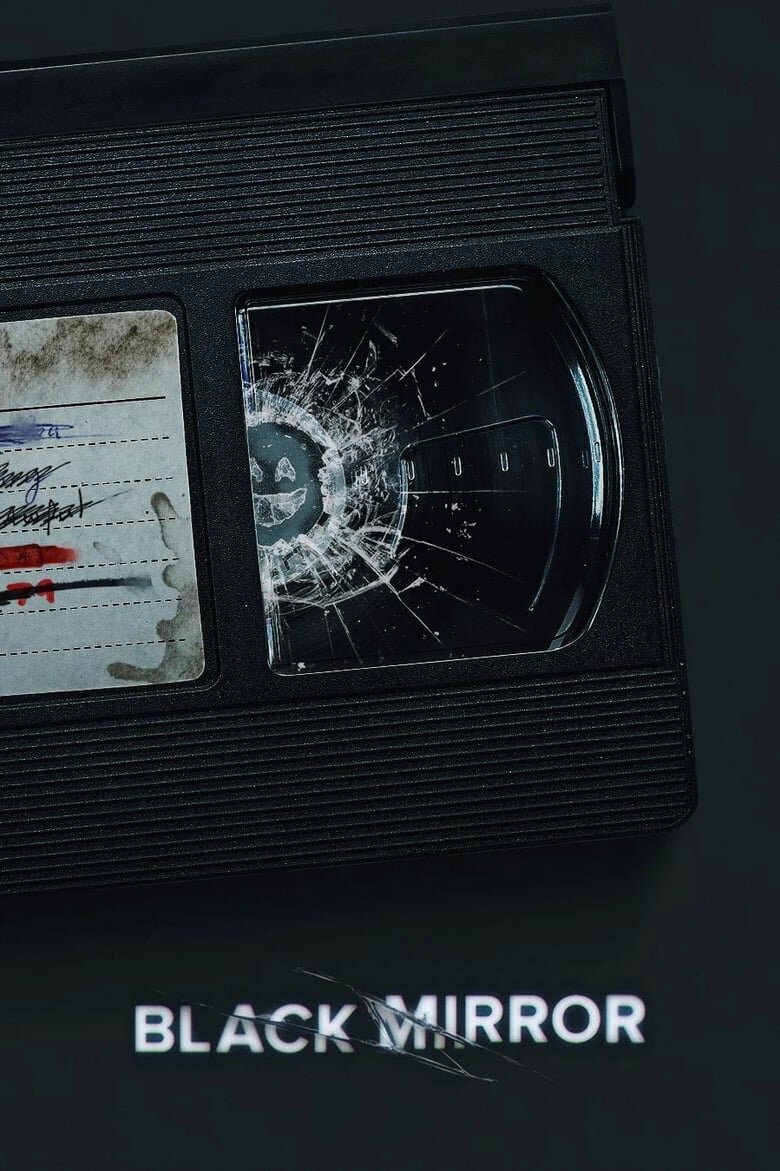Black Mirror
USS Callister: Into Infinity
Season: 7
Episode: 6
Air date: 2025-04-10
Guest stars: Jesse Plemons,Cristin Milioti,Jimmi Simpson,Milanka Brooks,Osy Ikhile,Paul G. Raymond,Billy Magnussen,Gwion Glyn,Hélder Fernandes,Ebenezer Gyau,Bilal Hasna,Iolanthe,Rita Estevanovich,Tom Simons,Daniel Middleton,Anjana Vasan
Nanette Cole and the crew of the USS Callister are stranded in an infinite virtual universe, fighting for survival against 30 million players.
"Every day, I would go into work, and you would hear nothing but hate and hate and hate and hate, specifically from people who claim to be tolerant." – Amala Ekpunobi
That quote, pulled from the 2021 video
“From Unhappy Liberal to Hopeful Conservative” posted by The Daily Wire, is a perfect encapsulation of how I felt watching
USS Callister: Into Infinity. In the video, Amala—half-Black, raised by a white family, and formerly a liberal activist—describes her disillusionment with the progressive circles she once called home. She talks about how tolerance became a mask for seething contempt, how her own family was the target of vitriol simply for being white, and how supposed anti-racists displayed the most tribal hate she’d ever encountered.
People call her a grifter. They call her stupid. But they rarely
debunk her. Why? Because she’s too inconvenient to confront. And maybe that’s why I related so much to her story. I’m Singaporean Chinese. I used to be liberal, proudly so. I spoke out against Trump. I backed gun control. I cheered the Obama era like a wide-eyed idealist watching history unfold. And yeah, I laughed when the late-night comedians dragged every MAGA soundbite through the mud. It felt good. Righteous.
But somewhere down the line, I started noticing the rot. How every male character was suddenly a clumsy fool, a closet predator, or both. How every woman’s flaw was somehow a virtue. How "tolerance" became a weapon, and “representation” a cudgel. Somewhere along the way, I realized the same machine that promised progress was just carving out new villains—different targets, same tactics.
And now, watching
Into Infinity, I see that same script. Every single white male character? A buffoon, a monster, or a joke. Even the so-called “good one” gets neutered and humiliated. Clone James Walton paraded around like caveman cosplay, the butt of every joke. Karl Plowman—a coin flip between sneering fratboy and simpering idiot depending on which server he's in. And Robert Daly, once written with nuance and tragedy in the original
Callister, is now just another “Nice Guy” turned sociopath—because apparently, loneliness plus gaming equals danger.
It’s not bold. It’s not biting. It’s just tired.
The opening third of this episode is so suffocatingly predictable it might as well have aired with a pop-up banner that reads
“This episode is brought to you by THE MESSAGE™.” There’s no tension, no discovery, just recycled morality theatre propped up by tech jargon and space scenery. And any time a scene threatens to touch on something real—like Nate Packer hurling trauma at someone else and then regretting it—the show moves on before it has to
deal with it. Because nuance would require actual writing.
But let’s talk about what truly disgusted me: the idea that hardship is the crucible of womanhood. Charlie Brooker himself stated that Nanette Cole only became “whole” after what she endured aboard the Callister—that her “real” self, the one who didn’t suffer, was
lesser. Less complete. Less worthy. And that’s where this episode crossed a line.
This is
Sonnie’s Edge all over again—the
Love, Death & Robots pilot that dressed up female empowerment in graphic trauma. The kind of writing that treats abuse not as a tragedy but as a
power-up. And here, Nanette is only validated once she’s been imprisoned, violated, and broken down by men—only then does the story allow her to “merge” with her weaker self and become the final form.
That’s not empowerment. That’s trauma cosplay sold as growth. It’s a grotesque inversion of misogyny, delivered with a feminist label slapped on top. And it’s telling that this writing came from a man pretending he’s finally “doing right” by women. Pat on the back, Charlie.
Now, I won’t pretend the episode is
entirely without merit. There’s a solid moment—brief, but present—where the ethics of inherited guilt are questioned. Where blame is assigned not for actions, but for association. That scene could’ve been brilliant, but it’s over in seconds and never returned to. And yes, the final confrontation against the antagonist—with its blend of Trek-inspired moral stakes and big-budget FX—lands as the episode’s most watchable chunk. There’s also a surface-level critique of MMO monetization, though it doesn’t go nearly far enough to feel fresh or daring.
But none of that changes the reality: this was a bait-and-switch. Season 7 started off bold, biting, subversive—
Common People and
Bête Noire challenged our assumptions, ripped at cultural dogma, and didn’t care who felt uncomfortable.
Into Infinity does the opposite. It
panders. It
preaches. It
protects the same tired ideological templates while pretending it’s sticking it to “the system.”
The only system it’s really serving is the algorithm of acceptability.
I’m done. This was the last chance I gave
Black Mirror. Because as a Chinese, an
Asian—someone the liberal world claims to protect—I refuse to participate in a movement that cloaks itself in empowerment while stomping on the heads of others. I won’t play a part in a culture that says,
“Now you know how it feels. Now be quiet and take it.”
That’s not progress. That’s vengeance.
And vengeance, no matter how pretty the CGI, doesn’t make good sci-fi.













